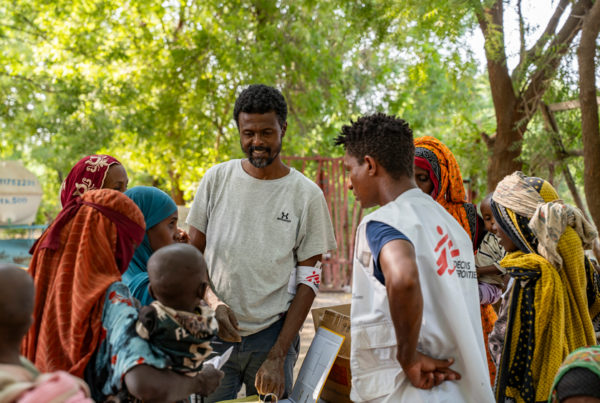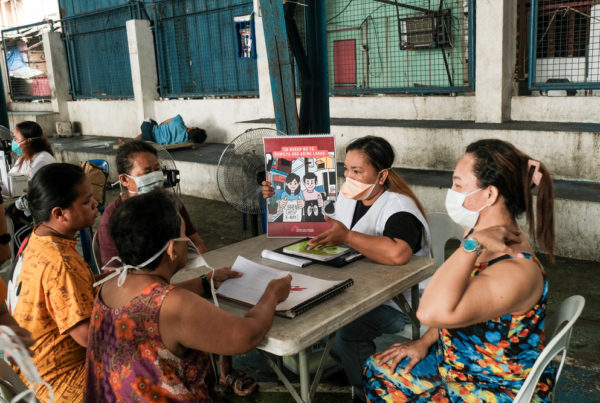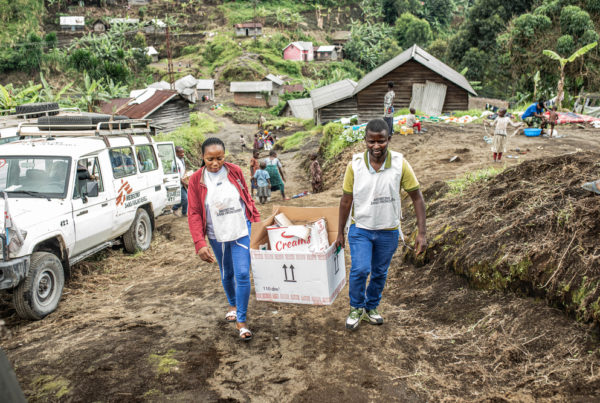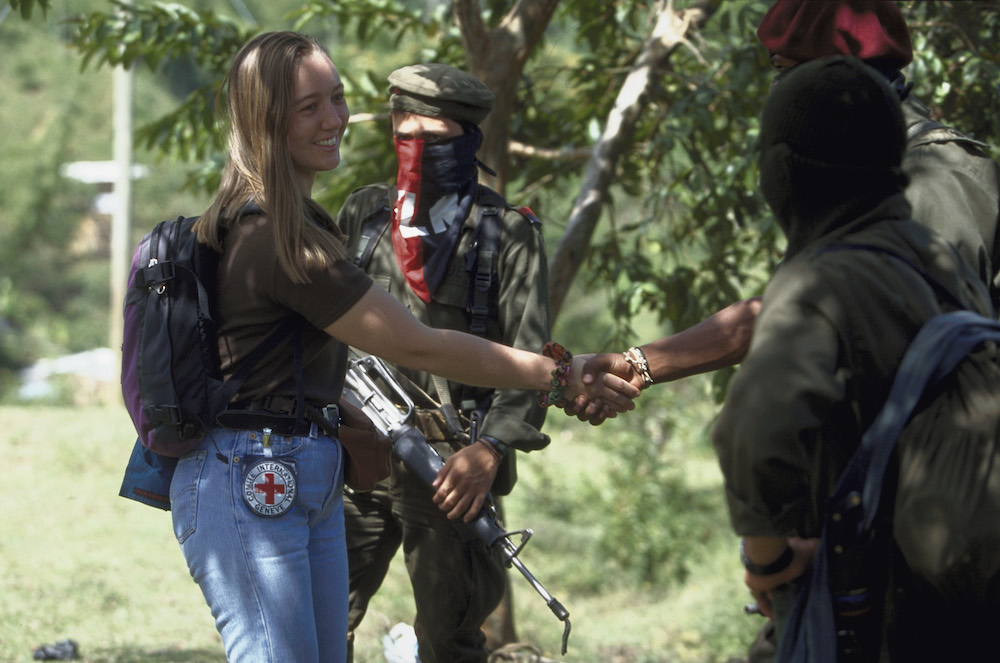
The air is thick with dust as your humanitarian convoy approaches the last checkpoint before reaching the small town. A group of armed men, their expressions unreadable, block the road.
You take a deep breath – this conversation could mean the difference between life and death for hundreds trapped in the village.
Whether you call it one or not, this is a negotiation.
You and the person you’re speaking to have competing interests. You want to reach the remote village cut off by conflict, and the armed men wish to control who goes into their territory.
Negotiation starts when two or more people have conflicting priorities and start a conversation to seek a mutually acceptable agreement.
***
Today, negotiation skills are more critical than ever.
We currently live in a world where holding opposing views means we refuse to speak to the other person.
In humanitarian contexts, being unwilling to engage with someone who doesn’t share our values makes our job impossible.
In truth, the reality on the ground forces us to interact with multiple people for multiple reasons.
We might speak with local authorities, non-state armed groups, soldiers, and even the communities we assist. Our objectives vary, but they all involve gaining access, reducing risks for our team, and ensuring people receive the assistance and protection they need.
In high-stakes humanitarian negotiations, knowing how to build trust, explore viable compromises, de-escalate tensions, and set firm yet flexible boundaries is essential.
It’s not easy, but humanitarian negotiation skills can be learned.
But first, what exactly is negotiation?
According to the CCHN Field Manual, humanitarian negotiation can be defined as any conversation you have with someone to:
- Establish and maintain your organisation’s presence in a crisis environment (conflicts, disasters, migration flows, epidemics, etc.),
- Ensure access to people affected by a crisis, and
- Deliver humanitarian assistance and carry out protection activities.
Humanitarian negotiations have two components.
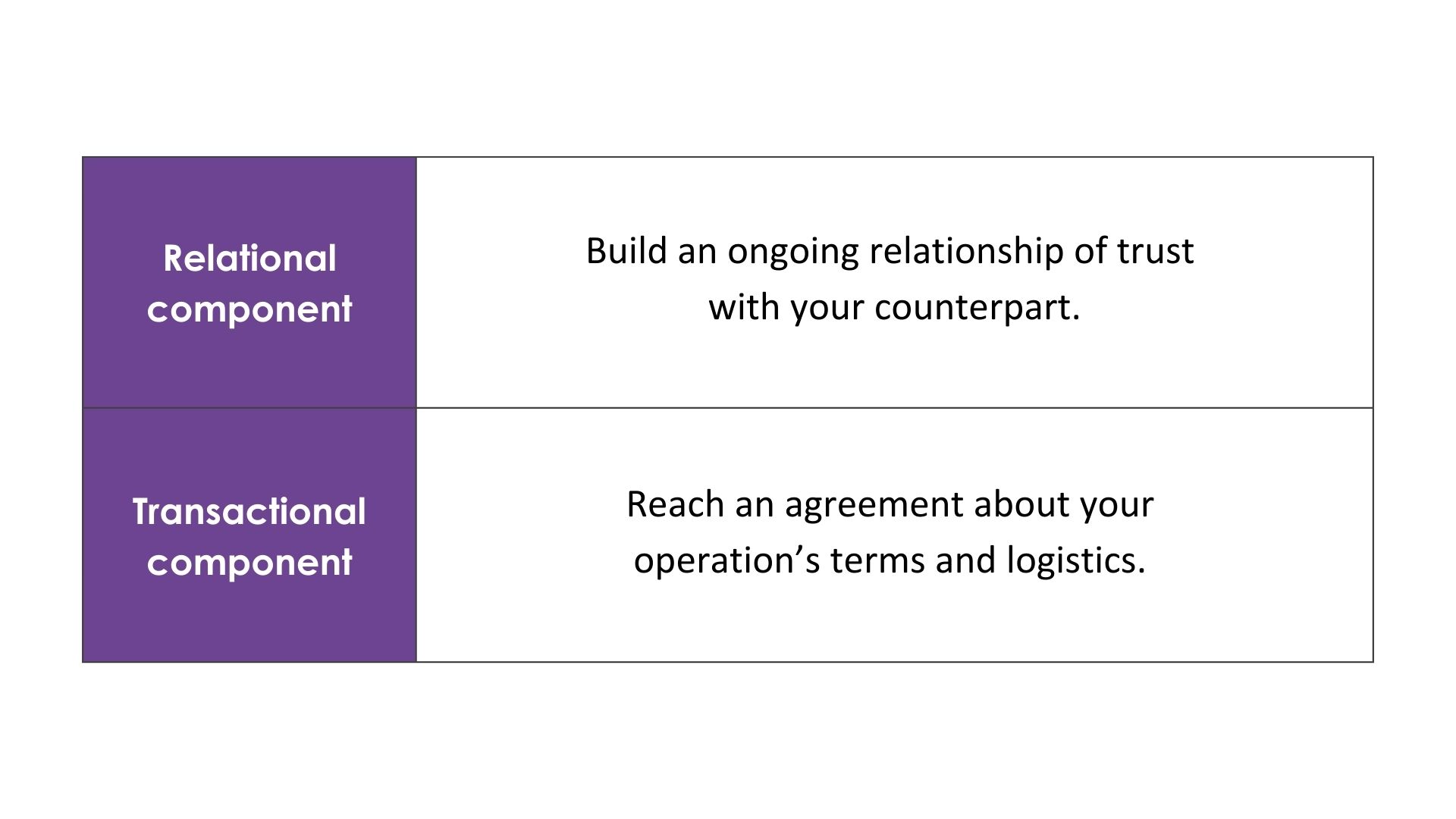
Unlike business or diplomatic negotiations, humanitarian negotiation is guided by core humanitarian values.
That means that any negotiation outcome must respect the following principles.
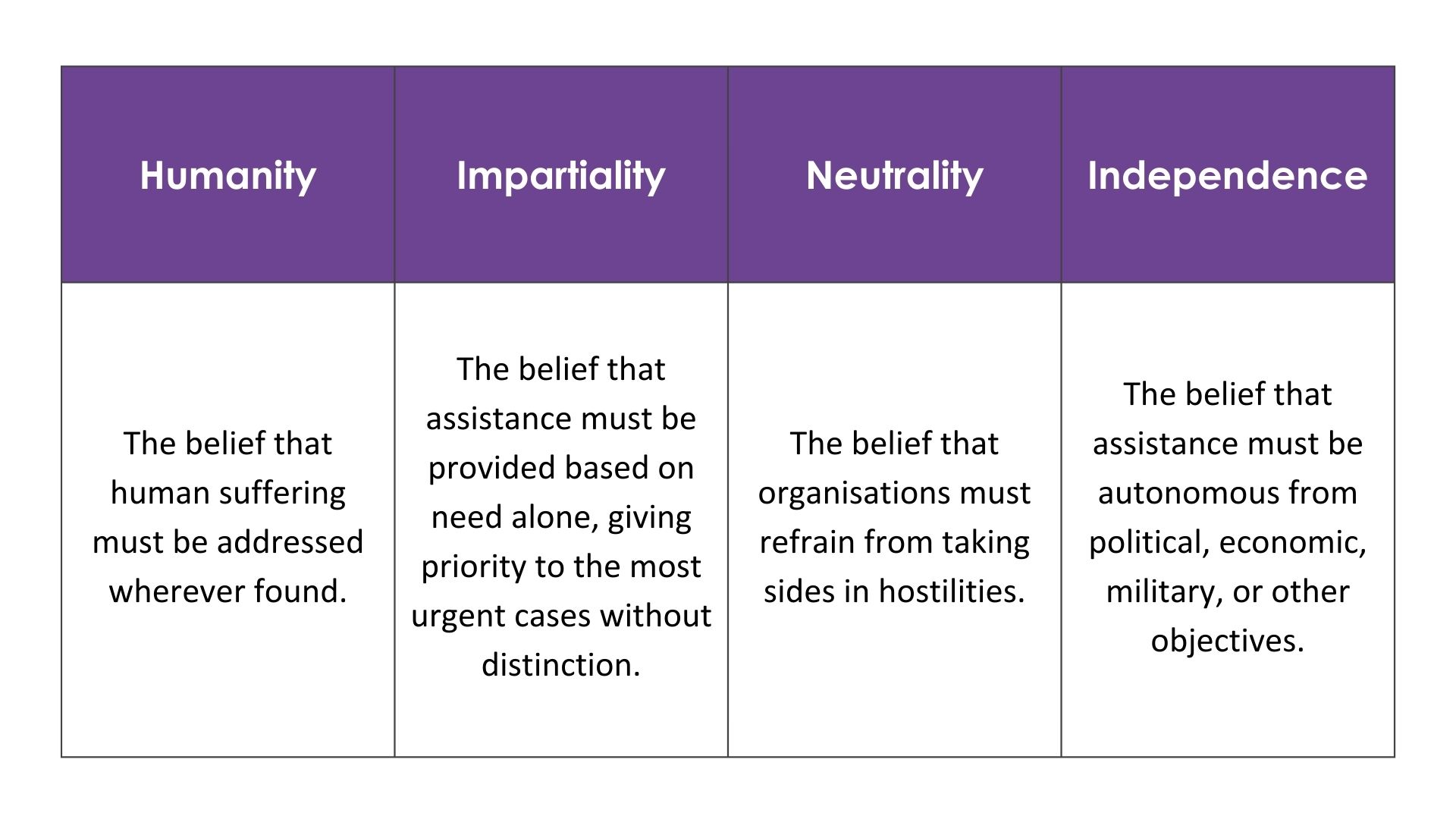
Okay, but why are humanitarian negotiation skills important?
Negotiation skills are increasingly recognised as essential to implement any humanitarian project while guaranteeing sustainable access to populations in need of assistance.
In humanitarian contexts, very few situations exist in which people’s interests, resources, or priorities align perfectly.
Bridging conflicting interests through principled negotiation is essential to facilitating aid delivery, maintaining operational safety, and avoiding costly delays.
According to interviews with hundreds of aid workers, humanitarian negotiation plays a critical role in conflict de-escalation and protection efforts by establishing a dialogue and long-term relationships of trust to secure humanitarian operations.
In increasingly protracted crises, negotiation is not just a tool for immediate relief but also a mechanism for community engagement, reinforcing local resilience and ensuring that interventions align with their needs and priorities.
In practical terms, humanitarian negotiation skills allow you to:
- Gain access to the affected populations.
- Resolve disputes and maintain relationships by finding solutions that benefit all parties.
- Minimise risks by negotiating safety measures and security protocols in volatile environments.
- Allocate resources effectively.
- Improve outcomes using creative problem-solving, leading to solutions that maximise impact and sustainability.
In sum, having the skills to reach a negotiated agreement will contribute to more impactful humanitarian operations.
How can humanitarians master basic negotiation skills?
There are many negotiation resources, but most focus on commercial negotiation.
Since humanitarian negotiations are led in confidential settings with difficult counterparts and must always respect humanitarian principles, negotiation techniques must be adapted to these contexts.
At the CCHN, we developed a negotiation called the Naivasha grid based on real-life negotiation practices. This model allows you to systematically prepare your negotiation strategy and observe and evaluate past negotiation processes, and is presented in our foundational negotiation workshops.
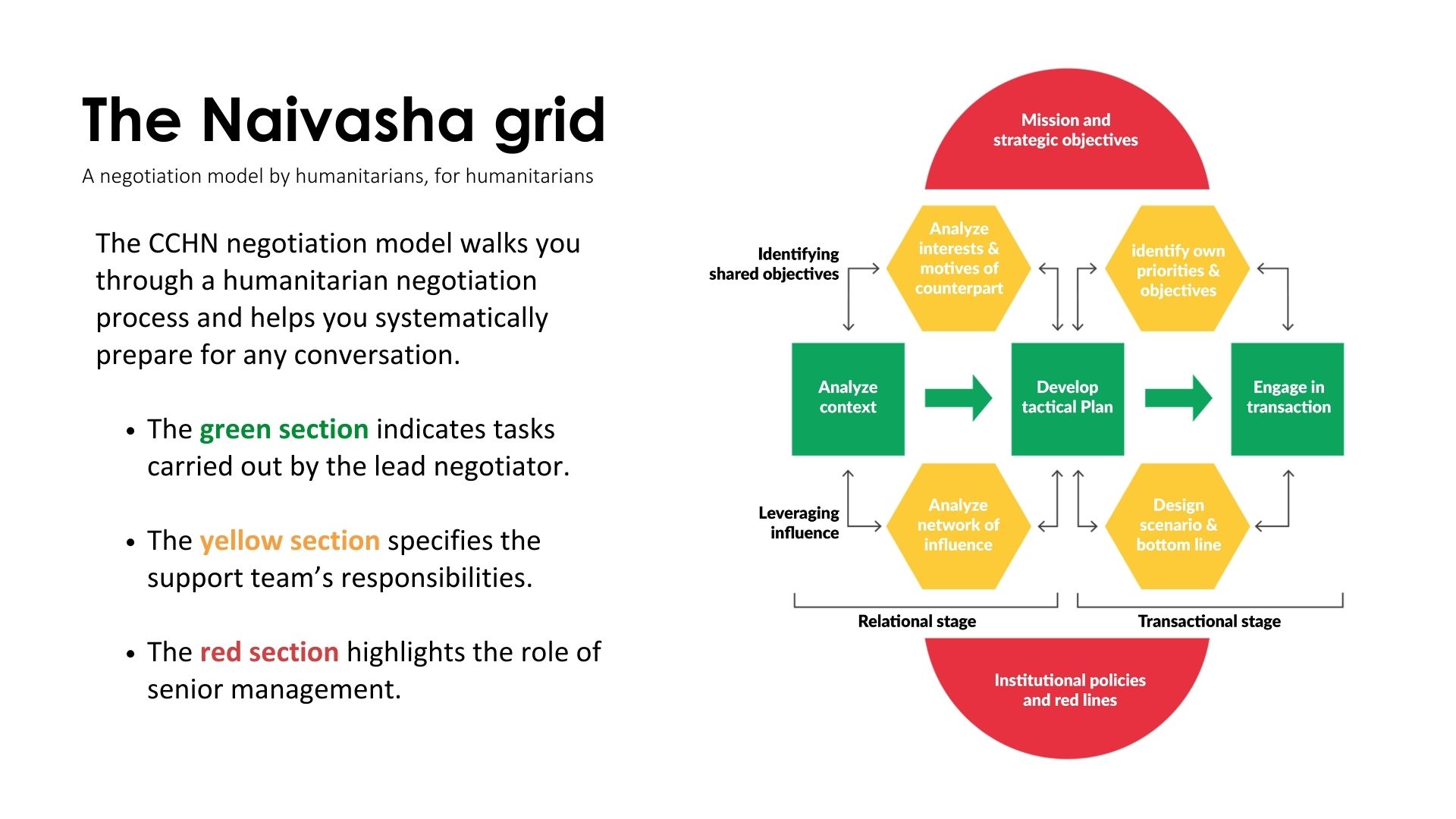
Based on this framework – and feedback from thousands of humanitarian professionals who apply this model daily – we identified the six essential negotiation skills every humanitarian should master.
1. Start on the right foot
Humanitarian negotiations happen in politically charged environments full of tensions, disagreements and power struggles.
Entering any negotiation process with a solid grasp of the facts will give you a leg up.
How to do it:
- Collect as much reliable data as you can. What is going on? What are the issues? Who is involved? How many people are affected?
- Decide what information you and your counterpart agree on. You will use this to open your conversation and address whatever you disagree on later.
Knowing where your priorities and those of your counterpart overlap is the foundation for a successful start.
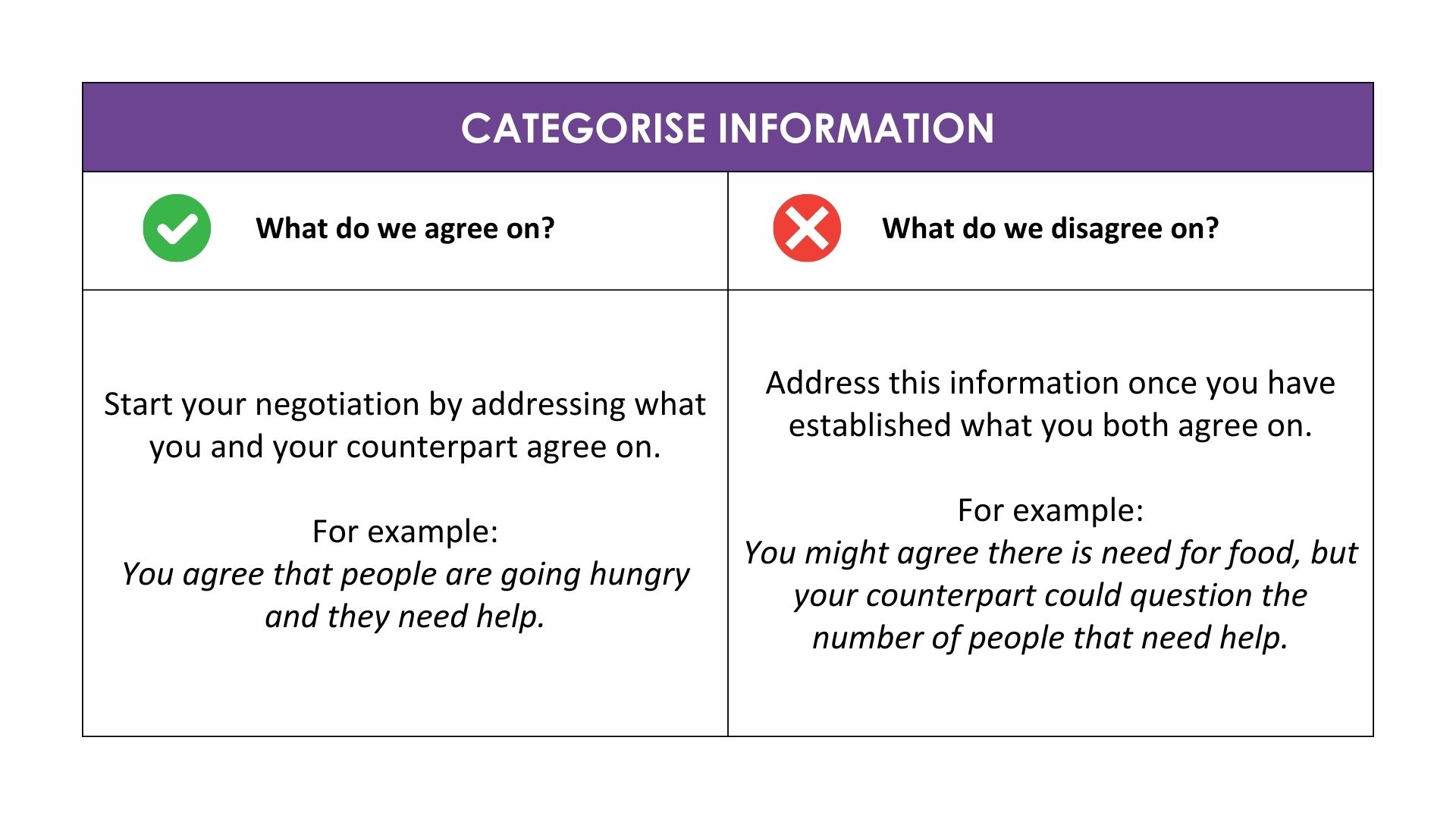
2. Influence your counterpart
Once you have the facts, the next step is identifying the right people to speak to.
How to do it:
- Identify your main counterpart. Who do you need to speak to to reach your objective?
- Build a stakeholder map. Think of it as a visual representation of the players and their relationships. Identify key players that can help you influence your main counterpart.
Effective negotiation isn’t just about talking to the right people – it’s about building lasting relationships with them.

3. Build common ground
As a humanitarian, your primary goal is to serve those most in need.
But how about your counterpart? What are their priorities, values, and concerns?
Without this mutual understanding, your negotiation will get stuck.
How to do it:
- Understand the values and reasoning supporting your counterpart’s position. Use your listening skills to understand what underpins your counterpart’s motives.
- In a creative exercise, find ways your values, reasoning and position could align with your counterpart’s.
Ultimately, the objective is to find a middle ground where you and your counterpart feel their needs are being addressed.

4. Set clear boundaries
A core challenge in humanitarian negotiation is managing competing demands while upholding fundamental humanitarian values and operational integrity.
This is where setting clear boundaries comes in.
How to do it:
- Identify ideal outcomes. Lay down the best possible outcomes for both sides.
- Set red lines. Establish non-negotiable limits based on your organisation’s policies.
- Determine bottom lines. Identify the threshold where risks outweigh benefits.
☝️ Remember, the goal is not to ‘win’ the negotiation but to ensure the best possible outcome for the affected population.
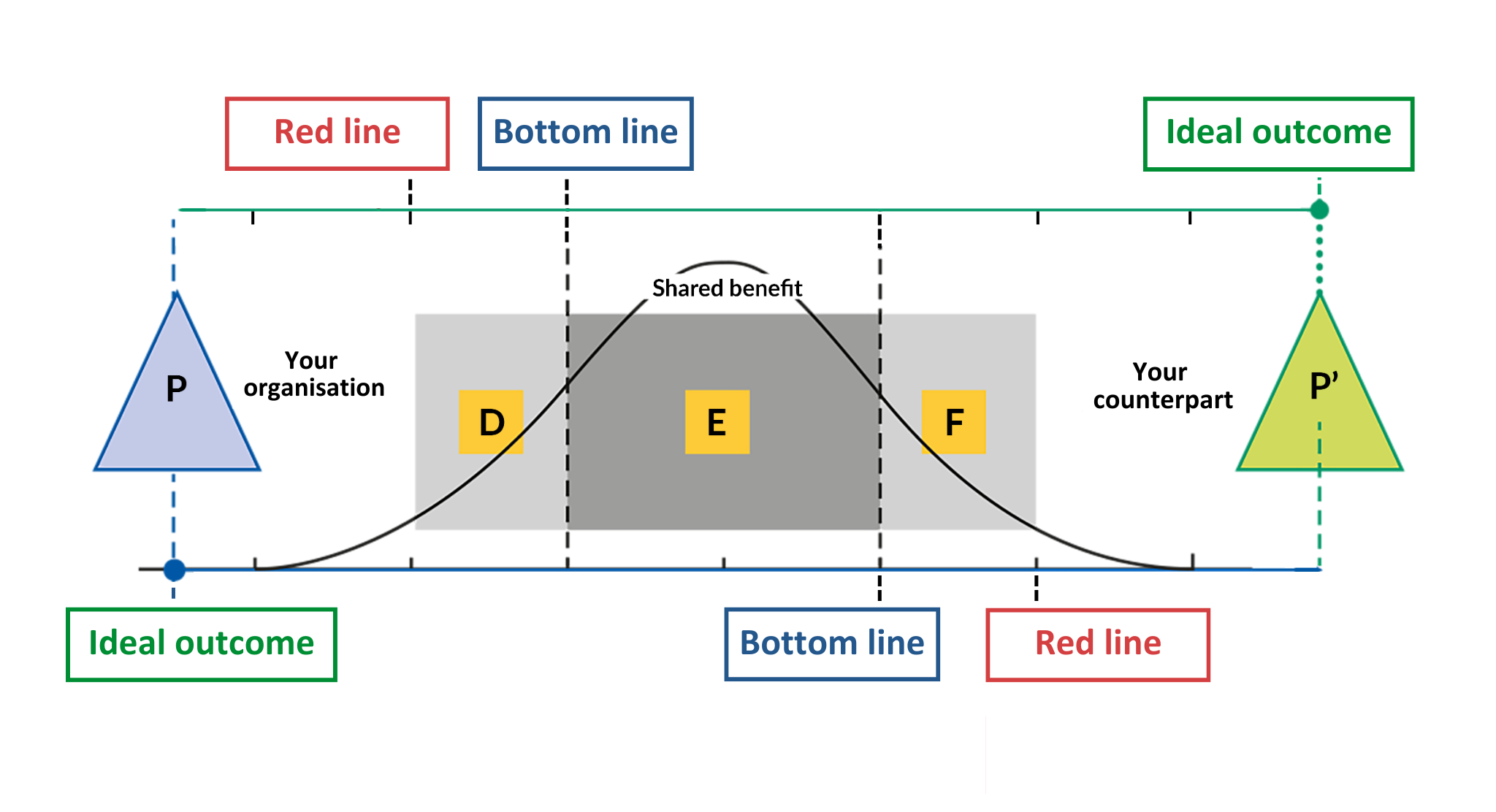
5. Build trust
Building trust helps you in the long term. When you build a relationship with your counterpart, you ensure that your operations can continue smoothly in the future.
To build trust, focus on three key areas:
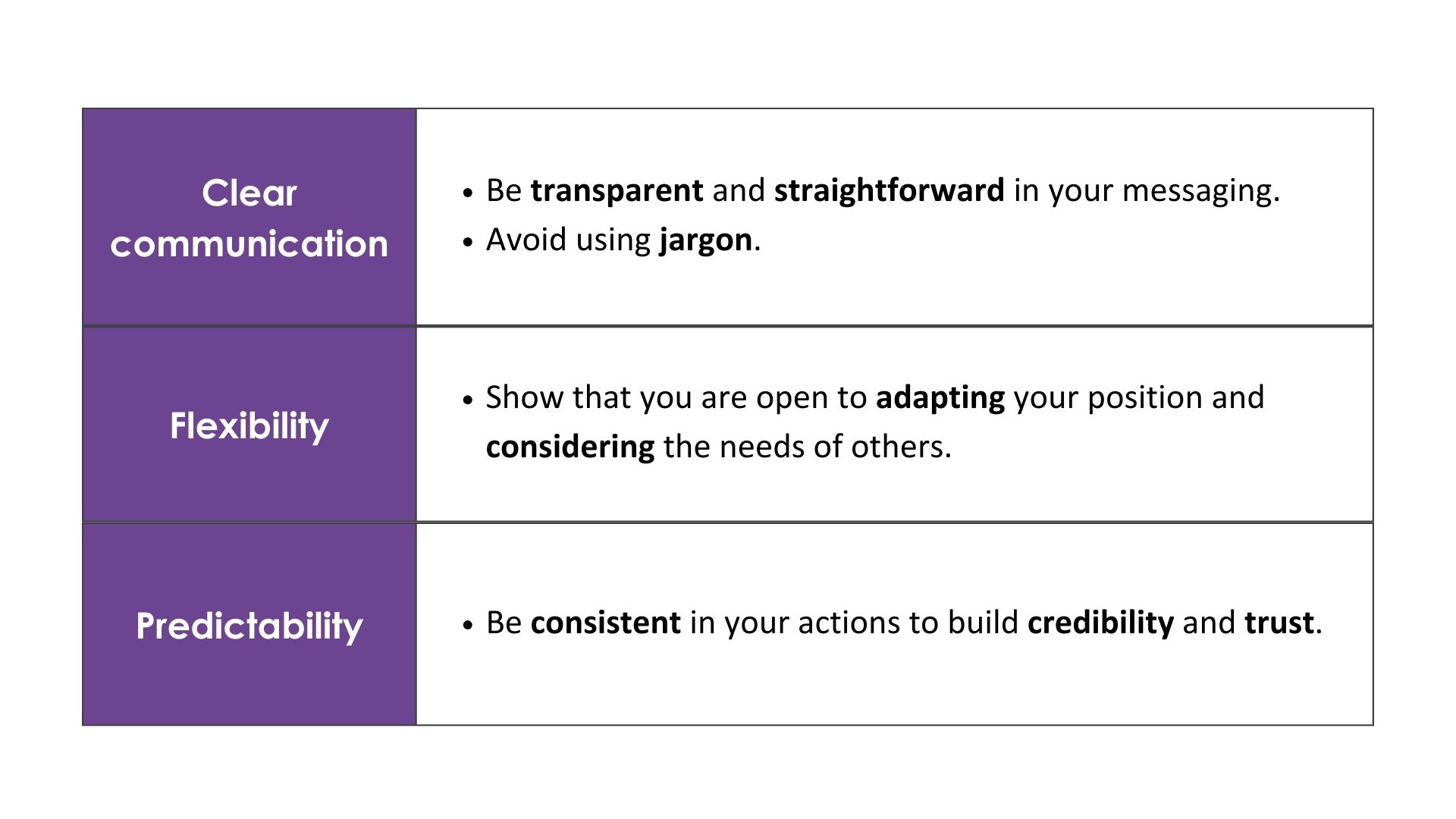
BONUS
6. Stay calm under pressure
In humanitarian settings, negotiations can be emotionally charged, especially when lives or critical resources are at stake.
It’s natural to feel overwhelmed, but staying calm is key to making rational decisions.
Maintaining your calm can set the tone for the entire conversation, helping de-escalate tension and keeping discussions focused on solutions.
Practice breathing techniques, like the box breath, or short mindfulness exercises to centre yourself during difficult moments.
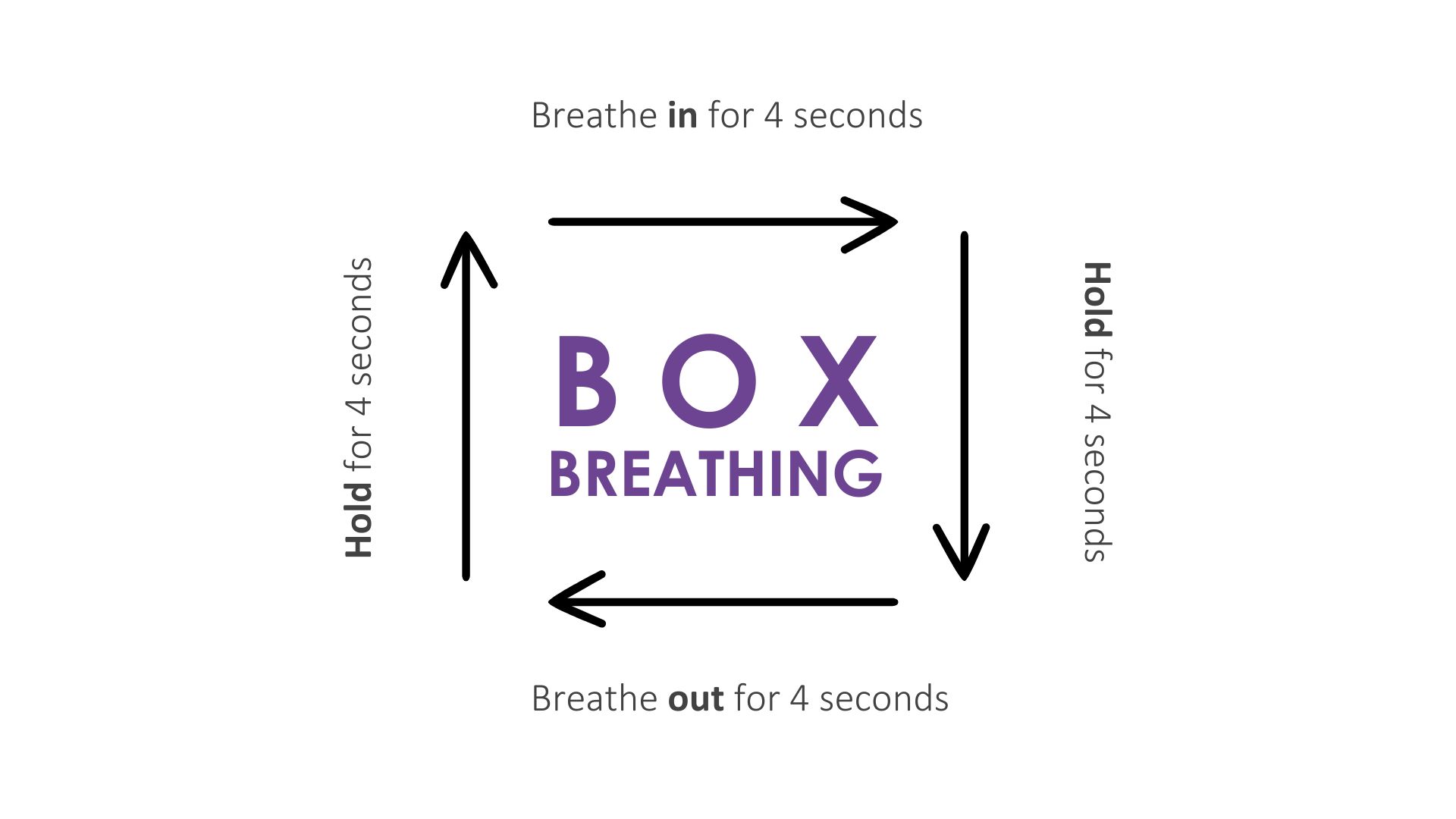
Remember…
Negotiation is an essential skill that every humanitarian professional should master.
Your ability to negotiate effectively can make a real difference in people’s lives. Whether you’re navigating government bureaucracy, calming tensions between displaced families and host communities, or collaborating with local health professionals.
Let’s recap the key steps:
- Start on the right foot.
- Influence your counterpart.
- Build common ground.
- Set clear boundaries.
- Build trust.
- Stay calm under pressure.
Remember, the goal of negotiation in humanitarian contexts isn’t just reaching an agreement—it’s finding solutions that best serve the needs of vulnerable populations.
Now you know the top six skills for a successful negotiation. Good luck!

